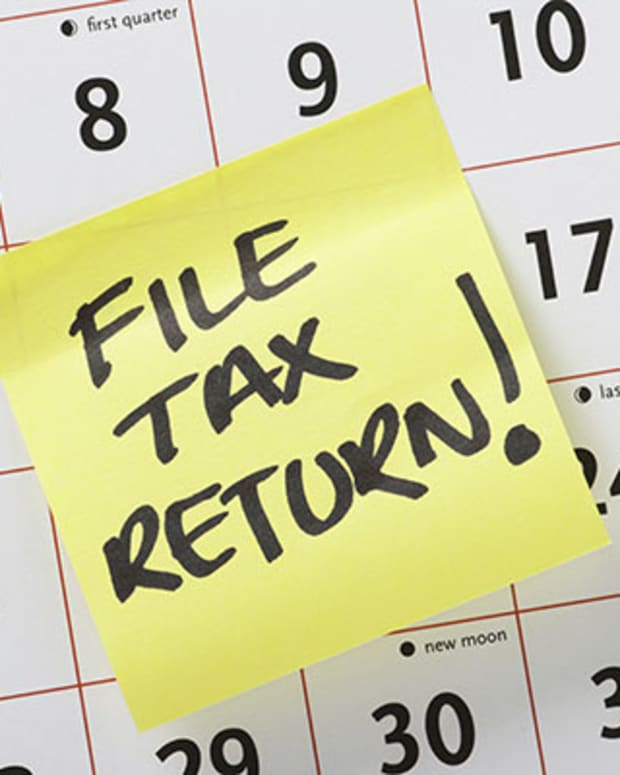
Taxes Done? Find Out Which Tax Records You Should Keep
The tax deadline has come and gone, but before you throw all of your tax documents up in the air to celebrate the occasion, we need to discuss just how long you should keep that info in a safe and secure place.
That’s right, you should store your tax information and documentation — including a copy of your tax return — for safekeeping, just in case you need to reference it. But for how long?
Don’t worry about knowing tax rules. With TurboTax Live, you can connect with real tax experts or CPAs to help with your taxes — or even do them for you. Get unlimited tax advice right on your screen from live tax experts as you do your taxes, or have everything done for you—start to finish. So you can increase your tax knowledge and understanding and be 100% confident your return is done right, guaranteed.
Three-Year Limitation
When we talk about tax documents, we’re talking about a copy of the tax return that you filed, along with W2s, logs for mileage, 1099s, receipts, or any paperwork that will support your tax deductions or credits that you may have claimed. This includes anything that you used to prove the state of your finances on your tax return.
As a generic rule across the board, you should keep your tax records for at least 3 years after the date in which you filed – according to the statute of limitations outlined by the IRS. For example, if you filed this year by the May 17th, 2021 tax deadline, you should keep your 2020 tax return documentation until the April 2024 tax deadline.
This time frame was put in place to benefit both you and the IRS. You can benefit from this 3-year timetable because you have a set amount of time to claim any tax refund that is owed to you. On the flip side, the IRS generally will go back three years if they require substantiation for what you claim on your taxes.
Note, if you didn’t claim a tax deduction or tax credit on your 2018 taxes or file your 2018 taxes at all, you have until April 15th, 2022 to claim a tax refund.
Extenuating Circumstances
There’s always a “but”. When dealing with your retirement accounts, you should plan to keep your tax records for seven years after the funds have been completely withdrawn. You should also hold on to your documentation that long if you claim a bad debt deduction or a loss on securities that you labeled as worthless.
Records dealing with property (including stocks and equipment) should be kept until the 3-year statute runs out on the tax year in which you sold the property and claimed it on your tax return. If more than 25% of your income was omitted from your tax return, the IRS has six years to impose any additional tax that is required. If this situation fits your finances, keep those records for at least six years.
If you filed a fraudulent tax return, or if you refused/forgot to file a tax return, plan on keeping your financial records forever. In this case, the IRS has no statute of limitations.
Get every deduction you deserve. With TurboTax Deluxe, we'll search over 350 tax deductions and credits so you get your maximum refund, guaranteed. It’s free to start, and enjoy $10 off TurboTax Deluxe when you file.
Disposal Procedures
Some people decide to keep all of their financial records, forever. With technology being so convenient, it’s easy to backup all of your financial records on your computer. Be sure you’re using strong security software. It’s a good idea to back up your financial data on a device that’s not connected to the internet 100% of the time.
If you choose to throw away your records, shredding is always good advice. You can take it a step further and separate your shredding materials into different wastebaskets.
However, you decide to save or dispose of your financial records, remember to be safe and secure. This is your financial life we’re talking about here!
When you use TurboTax Online, keep in mind that you can access your prior-year tax return or transfer your prior-year tax return for free.
We’ve Got You Covered
Don’t worry about knowing tax laws. TurboTax will ask you simple questions about you and give you the tax deductions and credits you’re eligible for.
If you have questions, you can connect live via one-way video to a TurboTax Live tax expert with an average of 12 years of experience to get your tax questions answered. TurboTax Live tax experts are available, year-round in English and Spanish, and can also review, sign, and file your tax return — or new this year you can even fully hand over your taxes to them — all from the comfort of your home.









